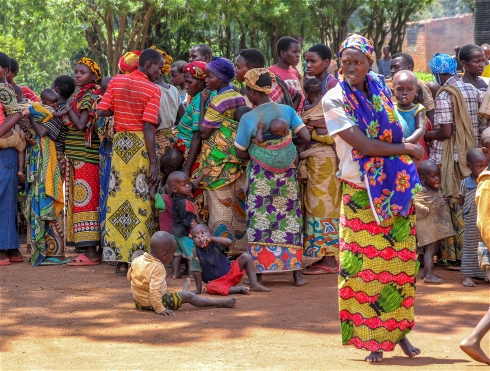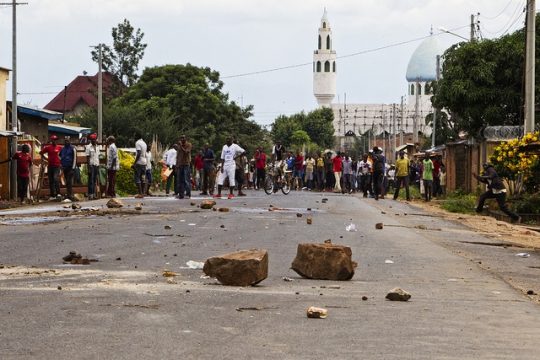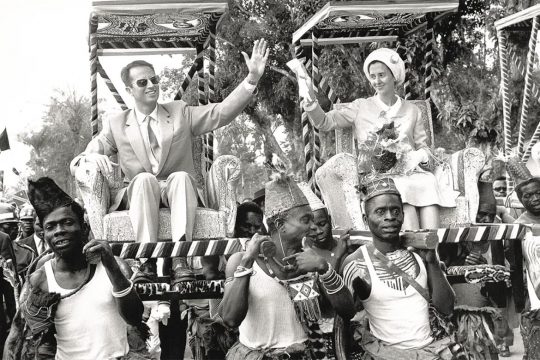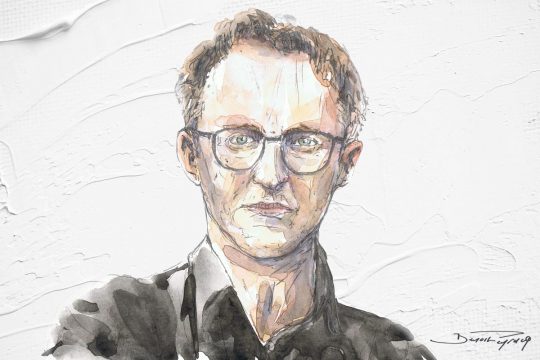Citizens of Burundi are called to the polls Tuesday July 21 for presidential elections that are taking place amid high tension. Incumbent president Pierre Nkurunziza’s announcement that he would run for a third term has triggered nearly three months of protest, repression and violence, with many civilians also fleeing to neighbouring countries.
Christine Deslaurier is a historian and Burundi specialist at the Research Institute for Development (IRD) in France. She spoke to JusticeInfo.net.
JusticeInfo.net: Why do you think the Burundian government is going ahead with these elections, despite pressure from both inside and outside the country to postpone them?
Christine Deslaurier: I think there are several reasons. The first one is that the government and supporters of President Nkurunziza feel justified in what they are doing, because they can tell themselves they have more or less followed instructions by postponing the presidential elections twice. And then, it is highly likely that Nkurunziza will be re-elected, so there is no reason for these people who support him to change their minds, all the more so because pressure from the East African Community and African Union has not been very strong.
JusticeInfo.net: Are there other candidates, apart from Nkurunziza?
CD: There were a certain number of others. At the beginning there were eight. Three of them have officially pulled out. Another one, Agathon Rwasa, recently said he would not participate, but he did not send a letter to the electoral commission like the others. So, that leaves four people: Nkurunziza; the candidate of the official UPRONA party; and two less influential candidates.
JusticeInfo.net: Do you think minimum conditions are in place for valid elections?
CD: I think the minimum condition would have been that there be a real opposition running, that is, an opposition that could campaign or, if not able to, at least wanted to. There have been plenty of elections in the world without observers, so I don’t think that is the heart of the problem. The heart of the problem is that one-sided elections, where we more or less know the result in advance, do not arouse much enthusiasm, at least not with regard to democracy.
JusticeInfo.net: What about the refugees?
CD: There is a real war of statistics going on, with on the one hand government people saying the refugees are coming back, and on the other hand information from organizations like Médecins sans Frontières and the UNHCR which suggest that there is not at all a wave of returns, and there may even be more people leaving for the refugee camps. So the refugee problem has not been solved at all. I think the refugee flows will change after the elections and the investiture of the President. I think a certain number of refugees are waiting to see what happens, they are apprehensive about the process and so prefer to watch from afar, rather than risk being caught up in a more violent conflict.
JusticeInfo.net: There is also the issue of the media that have been closed down…
CD: With regard to the media, the situation is completely stalled because after they were closed, after most of the really independent media were destroyed two months ago, the Burundian judicial authorities explained they could not grant access to the premises until investigations are complete. But at the moment we can’t see many inquiries moving forward or investigations going on, so I think the media situation is likely to remain like that for quite a while, all the more so because it is quite expensive to rebuild the media, especially equipment (…).
JusticeInfo.net: And the security situation, disarmament of the ruling CNDD-FDD party youth?
CD: In fact, security goes hand in hand with disarmament. The big question is to know who can carry out disarmament. The CNDD-FDD, whose youth league is accused of having been at least partially armed, denies that this is so but at the same time says it has disarmed them! (…) Now the regime sees that there are frequent grenade attacks on police positions, especially in Bujumbura, and is turning the disarmament argument against the protesters (…).
JusticeInfo.net: How do you see Burundi’s future after the elections?
CD: Considering the total impasse the country is in and the persistent tensions – which date from before the President announced his third-term bid, the country has been deeply divided for several years now (…) --, I think that in a situation like that which is highly tense and on edge, it is unlikely the country will return to complete peace in a few months. Pressure is likely to continue, because the trigger for all these protests and insecurity was nevertheless the announcement of Nkurunziza’s candidacy. So if he is elected, his right to govern is not likely to be suddenly recognized by all the men and women who have been thinking for months and years that he has no legitimacy to run the country (…).
JusticeInfo.net: What about the question of justice for crimes of the past?
CD: Like lots of other analysts and researchers, I think that the justice issue is probably one of the things creating the greatest tension. As the country has never delivered justice for the dozens of years of difficulties, events and crises, as they are euphemistically referred to in Burundi -- which are in fact large-scale or even genocidal massacres --, as long as the country does not have real justice, I fear it will not be able to pull itself out of crisis. (…).







